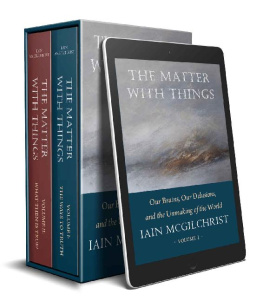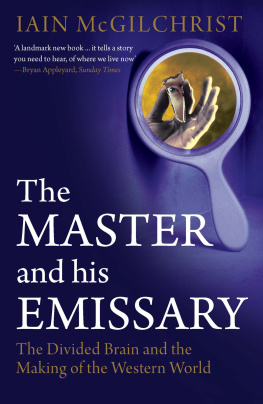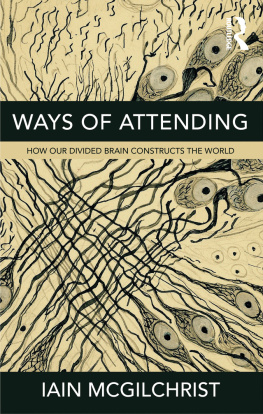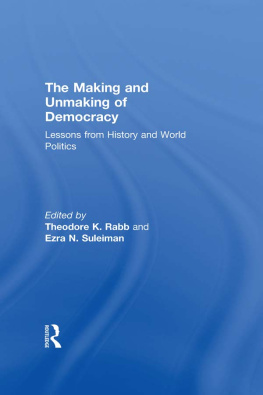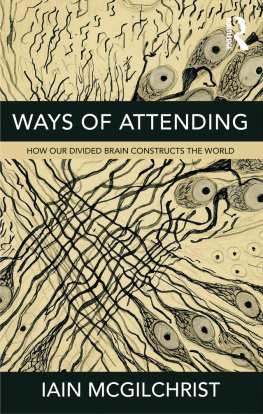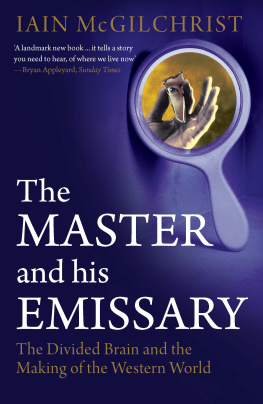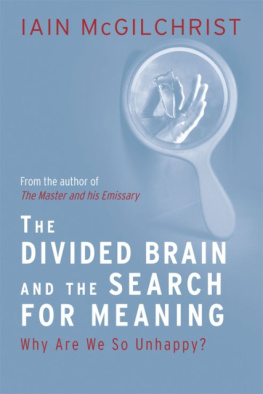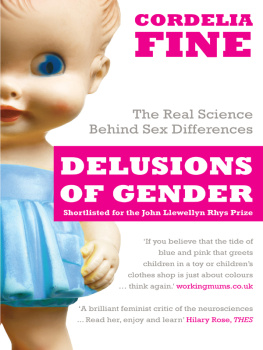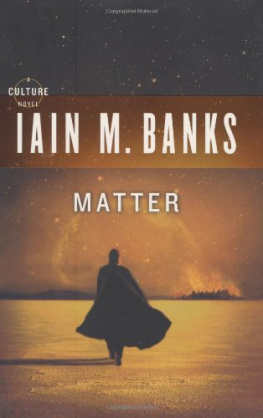Iain McGilchrist - The Matter With Things: Our Brains, Our Delusions and the Unmaking of the World
Here you can read online Iain McGilchrist - The Matter With Things: Our Brains, Our Delusions and the Unmaking of the World full text of the book (entire story) in english for free. Download pdf and epub, get meaning, cover and reviews about this ebook. year: 2021, publisher: Perspectiva Press, genre: Science. Description of the work, (preface) as well as reviews are available. Best literature library LitArk.com created for fans of good reading and offers a wide selection of genres:
Romance novel
Science fiction
Adventure
Detective
Science
History
Home and family
Prose
Art
Politics
Computer
Non-fiction
Religion
Business
Children
Humor
Choose a favorite category and find really read worthwhile books. Enjoy immersion in the world of imagination, feel the emotions of the characters or learn something new for yourself, make an fascinating discovery.
- Book:The Matter With Things: Our Brains, Our Delusions and the Unmaking of the World
- Author:
- Publisher:Perspectiva Press
- Genre:
- Year:2021
- Rating:5 / 5
- Favourites:Add to favourites
- Your mark:
- 100
- 1
- 2
- 3
- 4
- 5
The Matter With Things: Our Brains, Our Delusions and the Unmaking of the World: summary, description and annotation
We offer to read an annotation, description, summary or preface (depends on what the author of the book "The Matter With Things: Our Brains, Our Delusions and the Unmaking of the World" wrote himself). If you haven't found the necessary information about the book — write in the comments, we will try to find it.
Iain McGilchrist: author's other books
Who wrote The Matter With Things: Our Brains, Our Delusions and the Unmaking of the World? Find out the surname, the name of the author of the book and a list of all author's works by series.
The Matter With Things: Our Brains, Our Delusions and the Unmaking of the World — read online for free the complete book (whole text) full work
Below is the text of the book, divided by pages. System saving the place of the last page read, allows you to conveniently read the book "The Matter With Things: Our Brains, Our Delusions and the Unmaking of the World" online for free, without having to search again every time where you left off. Put a bookmark, and you can go to the page where you finished reading at any time.
Font size:
Interval:
Bookmark:



The Matter With Things:
Our Brains, Our Delusions and the Unmaking of the World
Copyright 2021 Iain McGilchrist
First published in 2021 by Perspectiva Press
PO Box 75779, London, SW15 9HW
www.systems-souls-society.com
All individual copyright information for material incorporated in this book can be found in the credits for the colour plates in volumes 1 & 2, and in the Acknowledgments.
The author and publishers have made every effort to trace the owners of copyright material reproduced in this book. In the event of any omission, please contact the publishers, who will make appropriate restitution in future editions.
Iain McGilchrist asserts his moral right to be identified as the author of this book.
All rights reserved. No part of this publication may be reproduced, stored in a retrieval system or transmitted in any form by any means, electronic, mechanical, photocopying, recording or otherwise, without the prior written consent of the copyright owner and the publisher, other than as permitted by UK copyright legislation.
ISBN (hardback) 978-1-914568-06-0
ISBN (ebook) 978-1-914568-05-3
A CIP catalogue record for this book is available from the British Library.
THE HEMISPHERES AND THE MEANS TO TRUTH
THE HEMISPHERES & THE PATHS TO TRUTH
THE UNFORESEEN NATURE OF REALITY
This book is what would conventionally be called a single argument. That is why I have chosen not to publish it as three separate books: one on neuropsychology how our brains shape reality; one on epistemology how we can come to know anything at all; and one on metaphysics the nature of what we find in the cosmos. It is intended as a single whole, each part illuminating, and in turn illumined by, the others.
And yet it is also not an argument, in the conventional sense, at all. If we want others to understand the beauty of a landscape with which they may be unfamiliar, an argument is pointless: instead we must take them there and explore it with them, walking on the hills and mountains, pausing as new vantage points continually open around us, allowing our companions to experience it for themselves.
Such, at any rate, is my intention in this book. The journey matters because it is the arrival. This means that while, for some, every succeeding view will disclose some new aspect of an always changing landscape with which at every turn they become better acquainted, for others the landscape will appear to be, unrewardingly, always the same landscape.
Importantly, this also means that the reader must not feel that the whole book has either to be read in its entirety or not at all. Continuing the analogy of a journey, it can be taken in (I hope) enjoyable stages; and can be put down and picked up, or explored according to whim. My hope is that my reader will end by reading much of it anyway, but do so in a spirit of an intellectual friendship, not as another challenge to fit in to a busy life.
At one point I was going to call this book There Are No Things. I changed my mind when I saw that it might align me with a nihilistic trend in post-modernism that I deplore. It also gave the impression that I was arguing for truth-as-correctness rather than truth-as-unconcealing. My aim is to clear away the assumptions that cloud our vision: and the assumption of a materialist world composed of things is the greatest impediment we face. In an obvious sense, there are things: my hope is that the reader will not abandon them, but reconceive them in a richer way. In summary, my trust is in my readers, that for them something deeper will be unconcealed, and that they will literally dis-cover a new vision of the world for themselves.
I apologise for the number of references. If I were merely relaying the conventional dogmas of neuroscience, they would hardly be necessary: but I am not, and so they are. I very much hope that this book, large as it is, will be read by the widest possible audience of intelligent general readers. I have therefore taken care that no specialist knowledge is assumed. At the same time, I aim to make a modest, but I hope significant, contribution to neuroscience. This makes the presentation of a very large body of research evidence inevitable; that should not deter the non-specialist reader, who may feel free to pass over the detail, mainly contained in notes as far as possible next to the text to which they refer. For colleagues, I have tried to make references as easy as possible to track down. It can be frustrating to be referred (as now seems to be the norm) to a volume of a journal without being directed to the part, leaving one to guess which of, perhaps, 12 such parts to access; I have tried always to give the full necessary information, and, to save the readers time, to indicate precise pages, where relevant, within a larger work. I have saved space by removing the conventionally supplied city in which a book is published: to know that Oxford University Press is based in Oxford, UK is hardly a revelation, and in todays world where a publisher claims to be based is largely irrelevant.
In the book there are many translated passages, sometimes from sources that have not been translated, or might have been better translated, into English. In this I hope to have made a small contribution to future scholarship in the area. Unless the reader is referred in the notes to a particular English translation as the source, all translations may be assumed to be by myself. To avoid repetition, I have omitted reminders of this fact. Where possible, if using anothers translation, I have consulted the original; and where I rely on my own translation, I have generally given the original, so that those more adept than I can judge for themselves.
The problem of neurology is to understand man himself.
Wilder Penfield
;
But we who arewe?
Plotinus
Yes, a key can lie for ever in the place where the locksmith left it, and never be used to open the lock the master forged it for.
Ludwig Wittgenstein
This book is an attempt to convey a way of looking at the world quite different from the one that has largely dominated the West for at least three hundred and fifty years some would say as long as two thousand years. I believe we have systematically misunderstood the nature of reality, and chosen to ignore, or silence, the minority of voices that have intuited as much and consistently maintained that this is the case. Now we have reached the point where there is an urgent need to transform both how we think of the world and what we make of ourselves; attempting to convey such a richer insight is the ambition of this book.
We have been seriously misled, I believe, because we have depended on that aspect of our brains that is most adept at manipulating the world in order to bend it to our purposes. The brain is, importantly, divided into two hemispheres: you could say, to sum up a vastly complex matter in a phrase, that the brains left hemisphere is designed to help us
Font size:
Interval:
Bookmark:
Similar books «The Matter With Things: Our Brains, Our Delusions and the Unmaking of the World»
Look at similar books to The Matter With Things: Our Brains, Our Delusions and the Unmaking of the World. We have selected literature similar in name and meaning in the hope of providing readers with more options to find new, interesting, not yet read works.
Discussion, reviews of the book The Matter With Things: Our Brains, Our Delusions and the Unmaking of the World and just readers' own opinions. Leave your comments, write what you think about the work, its meaning or the main characters. Specify what exactly you liked and what you didn't like, and why you think so.

